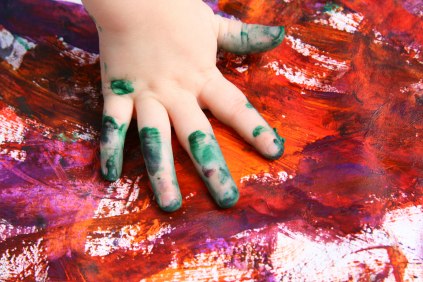In an age when most children grow up with a considerable articulation of their individuality, parents are faced with a challenging task. They need to nurture the feeling of self confidence in their children and yet recognise the innocence accompanying it.
For it is this innocence of the ways of the world that often land the youngsters in traumatic situations. This is truer of a child’s exploration on the Net than of any other medium: it offers an anonymous and free floating space for an individual to establish online contact (as a prelude to “offline” contact) with children to lure them into experiences that they are not ready for and which may leave a lasting scar on their psyche. Child pornography in cyberspace is a big threat as is the use of the Net by paedophiles to establish contact with children.
It is not that the Internet is creating new types of crimes against children; it is creating new ways in which existing crimes can be perpetrated. Between 2000 and 20001, the Interpol arrested more than 100 people from 12 countries involved in a child pornography club on the Internet. Over a million pornographic images of children as young as two were seized.
What do parents do in such a situation? They have to build a relationship of trust with their children and explain the need for observing certain precautions while surfing the Net, or the seven commandments for safe surfing:

Seven Commandments for Internet Safety [Illustration by Shiju George]
I won’t give out my name, number, address or identifying information such as personal e-mail identity to anyone on the Internet, even if they seem to be friends. I will always tell my parents when someone asks for this kind of information – even if it’s about a cartoon character I like. I won’t send pictures of myself to strangers online.
2) My parents and I are a team
I will teach my parents or adults responsible for me how to use the Internet. I will honestly show them where I go and what I do. I will teach them how to ‘surf’, and they can teach me how to stay safe. We work as a team and teams win when they work together.
3) I will say ‘no’
If need be I will exercise my right to say no. I won’t let other children or even my friends talk me into doing something on the Internet that my parents wouldn’t want me to do. I am strong and responsible, and I might sometimes have to say ‘no’ in order to do the right thing.
4) I will share my e-mail with my parents
I will not open email or look at any messages from a stranger without my parents knowing about it. If someone unknown to my family or I sends an email, I will make sure to tell them. I will not answer email from strangers unless my parents have had a look at it. I will not accept an offer to visit a web site unless my parents are there with me.
5) I will never talk to strangers
I will not visit chat rooms unless my parents know about it. I know that people sometimes pretend to be different on the Internet than they really are. Sometimes a grown-up might pretend to be a child. I need to be careful, and not always believe or trust people in chat rooms.
6) Keep safe distance
Many people can freely access the Internet. It is like a big big city. Most of these people will be strangers to me, and I will follow safety rules with these strangers as I follow safety rules in real life, and I will always keep strangers at a safe distance. On the Internet that means I only do what my parents, teachers or guardians say is right for me to do. It also means that I will not meet with an Internet friend without asking my family first and ensuring they come with me.
7) My family loves me and I will not blame myself for anything
If someone on the Internet says something nasty to me, it’s not my fault. I am not a bad person if someone else does something that is bad. If someone threatens me, I will not answer him or her and quietly log off. I will not be mean or rude to them. I can trust my parents, teachers and other adults in my family, and I know that I can tell them right away. They will know what to do about it.










